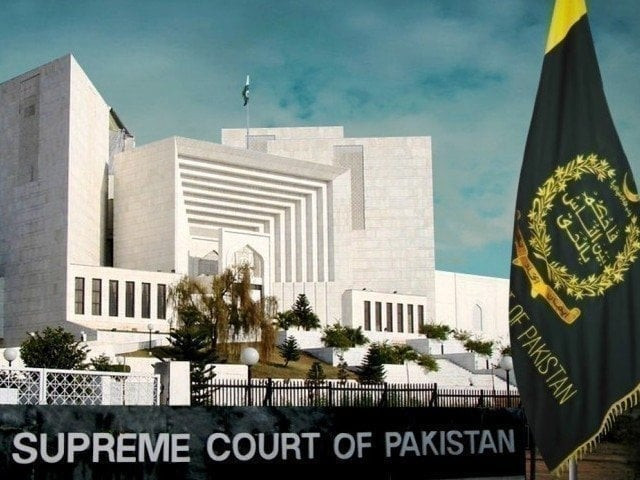Supreme Court. PHOTO: ARCHIVE
ISLAMABAD:
The fate of Pakistan’s highest court hangs in the balance as the government pushes through the 27th Constitutional Amendment, a move that could redefine, or even rename, the Supreme Court itself.
Tense deliberations are reportedly taking place within the judiciary over whether to respond collectively to the existential threat to judicial independence.
Under the proposed amendment, the Supreme Court would come under the authority of a newly created Federal Constitutional Court (FCC), and its rulings would be subject to the latter’s jurisprudence. The FCC’s first chief judge would be appointed by the executive, a move that critics warn risks undermining the separation of powers.
Observers have described the development as possibly “the last week of the current apex court”, noting that the amendment even seeks to remove “Pakistan” from the name of the SC and the title of the chief justice after the amendment comes into force.
Meanwhile, the government appears determined to pass the bill within days.
Chief Justice Yahya Afridi is scheduled to leave for Turkey on November 12, after which senior judge Syed Mansoor Ali Shah will act as acting CJP. However, if the 27th Amendment becomes law, the government could choose any Supreme Court justice for the position.
As the new week begins, all eyes are on the SC and how its judges will respond to the government’s controversial amendment. Monday is the first working day since the bill was introduced in Parliament and expectations of a reaction are high.
Lawyers predict that the court will soon break its silence, either through an institutional stance or through individual judges expressing disagreement with the proposed changes.
Legal experts are urging the judiciary to remain united in defending its independence, a cornerstone of the Constitution, and have asked CJ Afridi to call a full court meeting before the bill moves forward.
The SC may also ask the Attorney General of Pakistan to share the draft of the 27th Constitutional Amendment Bill for scrutiny, amid serious fears that the independence of the judiciary is under threat.
The response of CJP Yahya Afridi and the three members of the Constitutional Court committee will be crucial regarding the proposed amendment.
The 27th Amendment provides that the executive will appoint the first chief justice of the FCC from among the current judges of the SC.
Under the proposed 27th Amendment, the executive would appoint the first chief justice of the newly created FCC from among the current SC judges, a provision that critics believe strikes at the heart of judicial autonomy.
The government has yet to justify why a new high court is needed when the current central bank has already ruled in its favor on key issues over the past year. So far, no one within the judiciary has questioned why the SC should be subordinated to a body whose president must be appointed by the government.
Not even the legal experts of the ruling parties advise their political leaders on the legitimacy of a court whose president is appointed by the executive. Similarly, Supreme Court justices who may be candidates for appointment to the FCC must recognize the serious doubts surrounding the legitimacy of the current Parliament.
A major challenge will be how the new FCC dispels the perception that it is operating under the influence of the current regime.
There are two schools of thought regarding SC judges who have been marginalized by the executive and their peers.
The first suggests that they should no longer be part of the current system. Former additional attorney general Tariq Mahmood Khokhar says “the time has come to resign on principle and in good conscience.”
He added that “there are precedents, although not many, in which resigning from judicial office was considered the most honorable thing to do.”
However, another experienced lawyer disagrees. “I sincerely hope that no judge acts hastily or on instinct. No one should resign. Just wait and see,” he said. He added that all independent judges should not be discouraged, as “this is not over yet.”




